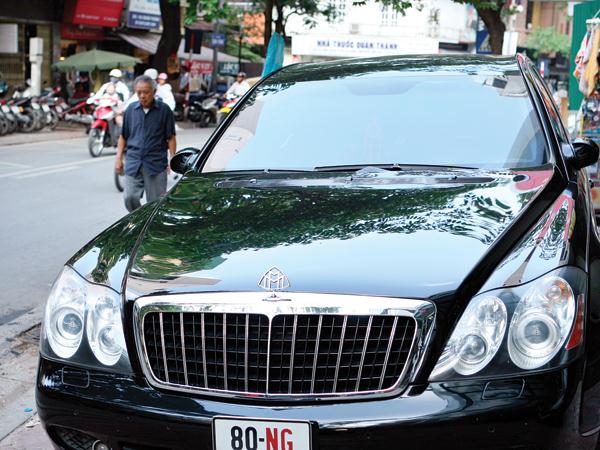Finance ministry mulls car repo plan

The MoF reported that only 129 cars which have expired diplomatic registration have completed ownership transfer procedures with the customs department.
This is a much smaller number than the 500 vehicles reported in November 2012.
Out of the 129 cars that have registered with customs, only 26 completed the required tax payments.
High tax amounts against the actual value of the vehicles themselves at the time of taxing have resulted in people avoiding tax payments.
One example is a Mercedes S320 owned by a Japanese diplomat, until his term expired in 2004. He then transferred the vehicle to a local Vietnamese.
The issue is that the required taxes were not paid whereas the taxes on the car initially should have been $68,500. Now the car’s actual value is put at around $21,400 only.
The car ownership transfer procedures also detailed that cars with diplomatic plates imported and used in Vietnam for more than ten years with permission from relevant government agencies are not subject to tax.
The problem surrounds the difference in tax rates between when diplomats leave Vietnam after ending working term and actual car ownership transfers in later period.
The customs department reported that Hanoi has 21 cars and motorbikes that fall under this unpaid tax issue.
For these vehicles, the initial tax income would have been $781,000 for ownership transfer but the buyers did not pay the tax. At the time relevant competent agencies consider the case these cars’ taxable value was determined at $259,000 only.
As a response, the MoF is considering asking the Prime Minister’s permission for the Ministry of Public Security to confiscate these vehicles.
Earlier, Phu Tho police confiscated over 20 cars with diplomatic plates and then sold them at auction.
The MoF is also considering another plan, under which owners of transferred diplomatic vehicles will have to pay an average between the tax rate at the time the diplomat ended their working term in Vietnam and when the buyer presented their ownership transfer papers.
The MoF said this could be effective by striking a balance between what the government and the car owners want.
According to the Ministry of Public Security, there were nearly 4,000 cars imported for diplomatic use between 1998 and 2009, of which a strong majority have yet to complete the ownership transfer procedure or pay taxes.
What the stars mean:
★ Poor ★ ★ Promising ★★★ Good ★★★★ Very good ★★★★★ Exceptional
Latest News
More News
- Congratulations from VFF Central Committee's int’l partners to 14th National Party Congress (January 25, 2026 | 09:46)
- List of newly-elected members of 14th Political Bureau announced (January 23, 2026 | 16:27)
- 14th Party Central Committee unanimously elects To Lam as General Secretary (January 23, 2026 | 16:22)
- List of members of 14th Party Central Committee announced (January 23, 2026 | 09:12)
- Highlights of fourth working day of 14th National Party Congress (January 23, 2026 | 09:06)
- Press provides timely, accurate coverage of 14th National Party Congress (January 22, 2026 | 09:49)
- Press release on second working day of 14th National Party Congress (January 22, 2026 | 09:19)
- Minister sets out key directions to promote intrinsic strength of Vietnamese culture (January 22, 2026 | 09:16)
- 14th National Party Congress: Renewed momentum for OVs to contribute to homeland (January 21, 2026 | 09:49)
- Party Congress building momentum for a new era of national growth (January 20, 2026 | 15:00)
















 Mobile Version
Mobile Version